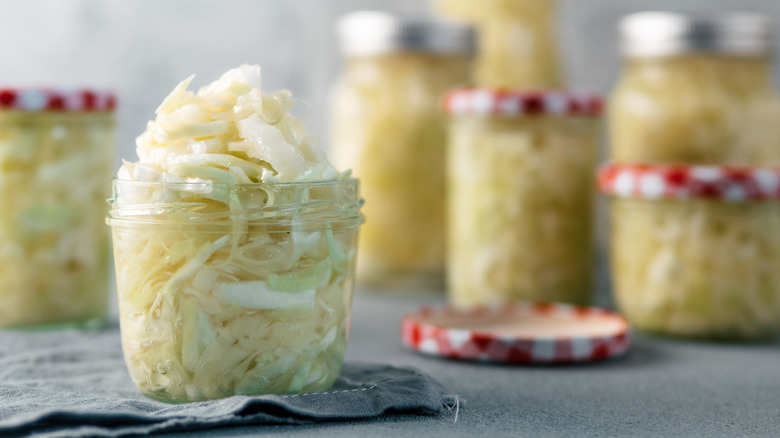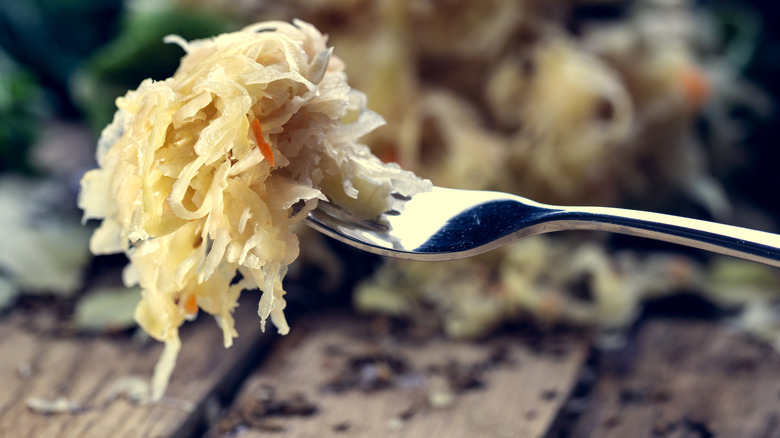You Should Start Eating More Sauerkraut. Here's Why
Sauerkraut originated in China some 2,000 years ago when cabbage was fermented with rice wine, via German Foods. But around the 16th century, Europeans adopted a more straightforward approach of letting the cabbage sit in salt to draw out its own juices. As Germans migrated to the United States in the 18th century, sauerkraut, or "sour cabbage," quickly became an American staple.
This sour side dish has taken the world by storm — not only as a flavorful layer to a Reuben sandwich or Bratwurst sausage but also for its health benefits and nutritional value: It is a solid source of fiber, and vitamins C, K, and B6, and is low in calories, coming in at under 30 for a cup with no fat, per Healthline. It even provides incredible benefits as a "superfood," via fermentation, according to German Foods, as its bacteria turns the sugars in cabbage into organic acids and carbon dioxide, according to Healthline.
So how exactly do we benefit from eating sauerkraut?
Health benefits of sauerkraut
The probiotics produced during the fermentation of the cabbage pack a powerful punch, especially for the gut. Our guts contain different types of bacteria, which aid in everything from digestive health and nutrient absorption to immune system function and brain health. A study published in Applied and Environmental Microbiology in 2003 found that just one serving of sauerkraut may have up to 28 different strains of these beneficial bacteria. Due to diets high in processed foods and antibiotic usage, most Americans are probably experiencing a lack of diversity and/or imbalance in gut bacteria, per Harvard Health Publishing. Over time, this may lead to a leaky gut, which has been linked to various health issues. Incorporating sauerkraut into meals offers a simple solution to add back some healthy bacteria to keep our guts happy.
Cabbage and its antioxidants in their fermented form may also have anti-carcinogenic properties. Though further studies are needed, there is evidence that glucosinolates, compounds abundant in sauerkraut, inhibit DNA damage and cell mutation, per GLK Foods.
But before you start loading up your grocery cart, it's important to know the benefits of sauerkraut and its probiotics are only present in their living form, per Harvard Health Publishing. So, much like with yogurt or kefir, refrigerated is the way to go. Steer clear of canned varieties and always check labels for added preservatives and pasteurization, which kill off the good bacteria. Or, you could always make your own.

